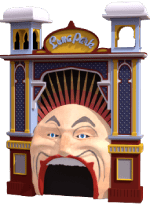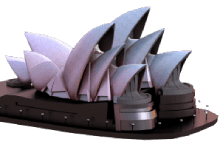It’s every website owner’s nightmare: you check your analytics one day and suddenly, your pages are nowhere to be found on Google. You frantically search for answers, but no matter what you do, your rankings just keep slipping further and further down. Why is this happening? And more importantly, how can you fix it?
There are a number of reasons why your website ranking may have dropped. It could be due to a change in Google’s algorithm, or it could be because you’ve lost links from other websites. Whatever the reason, there are some steps you can take to get your website ranking back up again.
12 Causes of Your Website’s Drop in Ranking and How to Fix Them
- You’ve lost links from high-quality websites. If you’ve recently noticed a drop in your website ranking, one possible reason is that you’ve lost backlinks from other sites. Backlinks are an important factor in Google’s ranking algorithm, so losing them can have a significant impact on your visibility and traffic.
To check if this is the case, take a look at your backlink profile to see if there are any websites that have removed links to your site. If you find any, reach out to the site owners and try to get the links restored. This can be a difficult process, but it’s worth it in order to maintain your website’s ranking and visibility.
- You’ve been hit by a penalty. Google’s algorithm is always changing, which can sometimes result in a drop in ranking for sites that are not in compliance with the new standards. If you think this might be the case, review Google’s guidelines and make any necessary changes to your site.
If you do receive a hit, Google will let you know. Check the problem by going to Google Search Console. You may find the penalty, its description, and all impacted pages under Security and Manual Actions. You can prevent additional fines and raise your rating by making the appropriate improvements to your website. - One of the most important aspects of SEO is making sure that your website’s content is unique. Search engines penalise websites that have duplicate content, so if you have multiple pages on your site with similar content, it could be dragging down your website ranking.
Use tools like Copyscape or Siteliner to check for duplicate content on your site and either remove it or rewrite it so that it’s unique. By taking this step, you can ensure that your website is in compliance with search engine guidelines and that your content is helping to improve your website ranking instead of hurting it. - You’re not using keywords effectively. Keywords are still an important part of SEO, so if you’re not using them effectively, it could be impacting your website ranking. Take a look at your page titles and descriptions to make sure you’re including relevant keywords that people are actually searching for. Don’t stuff keywords, though – use them naturally within the context of your content.
- Your site is slow or inaccessible. In today’s fast-paced world, people expect websites to load quickly and be available 24/7. If yours isn’t meeting those expectations, it could be affecting your website ranking.
Run a speed test on your site and see if there are any areas you can improve upon, such as reducing image file sizes or enabling caching. Additionally, make sure your site is accessible on all devices and browsers. - There are NoIndex tags on some important pages. If you’re tracking keyword rankings and notice that some valuable pages are not appearing in search results, it’s probably because you’ve accidentally included a “noindex” tag in the pages’ <head> section. This meta tag tells Google or any other search engine web crawler to skip indexing the page. Without crawling and indexing, your pages won’t have any SERPs ranking opportunities.
Fortunately, it’s easy to fix this mistake. Just remove the noindex tag from the <head> section of the affected pages and resubmit those pages to Google for indexing. Once they’ve been indexed, your pages should start appearing in search results again. In the meantime, make sure not to include a noindex tag on any new pages you create; otherwise, they’ll never be indexed and you’ll never get any SERP love for them.
- Some pages are inaccessible to Googlebot. One common reason Googlebot may be unable to crawl a page is that the site owner has used a robots.txt file to block access to that page. Robots.txt is a text file containing instructions for web crawlers, including Googlebot. It blocks or allows access to your pages. So, for example, if it contains a rule for blocking Googlebot from crawling specific pages, the search giant won’t be able to discover said pages. This may affect SERPs’ ranking and visibility.
There are many online tools that can help you create and edit robots.txt files. However, if you are not familiar with this process, it is best to leave it to the experts. In most cases, your web development team or SEO agency will be able to help you create and edit robots.txt files as needed. - Not prioritising search intent. If you’ve been working hard on your SEO but you’re still not seeing the results you want, it could be because you’re not aligning your content with the right search intent. When people use Google, they’re usually looking for one of three things: information, navigation, or transaction. Make sure that your pages are ranking for the right keywords by identifying the intent behind each search and then creating content that satisfies that intent.
For example, if someone is searching for “pizza delivery near me,” they’re probably looking to make a transaction, so you would want to include location-based keywords and call-to-action buttons on your page. On the other hand, someone who is searching for “how to make pizza” is probably looking for information, so you would want to include step-by-step instructions and maybe even a video tutorial.
By understanding and prioritising search intent, you can make sure that your pages are ranking high on Google.
- You are not optimising for your specific location. If you are targeting a specific country or city, make sure to include relevant keywords in your content. For example, if you are a business located in Australia, be sure to mention this in your title tags and meta descriptions. Additionally, you can add your city or state to your website’s address to help Google understand your location.
- Your website has not been updated for page experience. Page experience includes factors such as page load speed, visual stability and interactivity. If your site does not meet Google’s standards for page experience, it may be at a disadvantage in the search rankings.
- Your website has just been launched. A new website takes time to build authority. If you just launched your site last week, it’s going to take some time for Google to crawl and index your pages. And it will take even longer for your pages to start ranking in search results. The good news is that each new page you add to your site will get indexed a little faster. So keep adding quality content to your site, and eventually, your pages will start appearing in search results.
- You have too much competition. Even if your website is well-optimised and full of great content, you might still not be able to rank on the first page of Google if you have too much competition. That’s why it’s important to choose the right keywords when optimising your site. If you’re trying to rank for a highly competitive keyword, it might take more time and effort to reach the top of the rankings. But if you focus on long-tail keywords—keywords that are less common but still relevant to your business—you might have an easier time ranking in search results.
Improve Your Website Ranking With Expert SEO Assistance
If you’re reading this, then you’re probably wondering why your website isn’t ranking as high as you want it to on Google. Well, there could be a number of reasons. Whatever the reason may be, one thing is for sure: you need expert help from Star Digital Marketing.
Star Digital Marketing is a full-service digital marketing agency that specialises in SEO (search engine optimisation). We have a team of experts who will analyse your website and come up with a customised plan to help improve your ranking on Google. We know all the latest algorithms and trends, so you can rest assured that your website is in good hands.
In addition to SEO, we also offer other services such as social media marketing, Pay-Per-Click (PPC) advertising, and email marketing. We’ll work closely with you to come up with a comprehensive marketing strategy that will help take your business to the next level.
So if you’re ready to take your website ranking seriously, then contact Star Digital Marketing today and let us show you what we can do!





